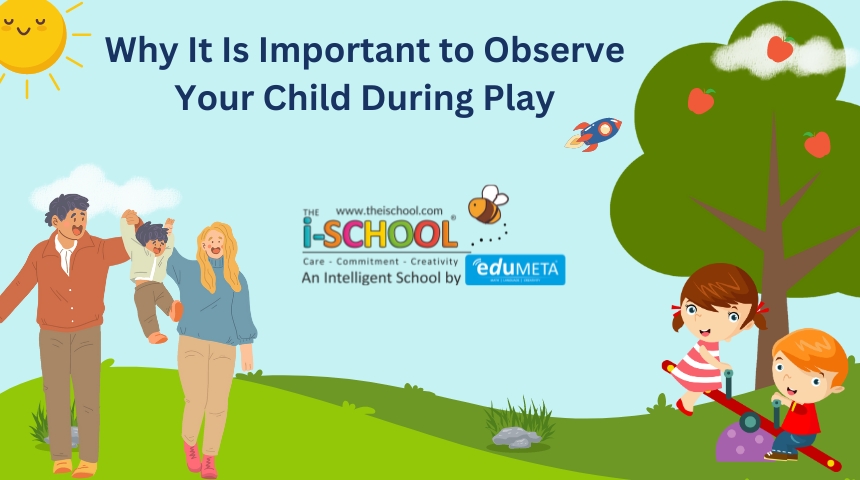Why It Is Important to Observe Your Child During Play

Observing your child during play is not just about ensuring their safety; it’s a crucial part of understanding their development and behavior. Play is a natural and essential part of childhood, offering insights into your child’s cognitive, social, emotional, and physical growth. Here are several reasons why it is important to observe your child during play.
1. Understanding Developmental Milestones
Tracking Progress: Observing your child during play helps you track their progress and identify whether they are meeting developmental milestones. You can see how they are developing motor skills, language abilities, and problem-solving capabilities.
Identifying Delays: Early observation allows you to identify any potential developmental delays or issues. If you notice something concerning, you can seek professional advice and support early on, which can be crucial for addressing any developmental concerns effectively.
2. Enhancing Parent-Child Bond
Building Connection: When you take the time to observe and engage with your child during play, you strengthen your bond. It shows your child that you are interested in their activities and value their efforts, fostering a sense of security and trust.
Understanding Interests: Observing play helps you understand your child’s interests and preferences. This knowledge allows you to support their passions and provide opportunities for them to explore and develop their skills further.
3. Learning About Social Skills
Social Interaction: Play often involves interaction with peers. By observing these interactions, you can see how your child communicates, shares, and resolves conflicts. This insight is valuable for understanding their social development and guiding them in building healthy relationships.
Teaching Moments: Observing social play can provide teachable moments. If you notice your child struggling with sharing or taking turns, you can gently intervene and guide them toward better social behaviors.
4. Supporting Emotional Development
Recognizing Emotions: Children often express their emotions through play. By observing, you can recognize their emotional states and understand how they cope with different feelings. This awareness helps you support their emotional development more effectively.
Addressing Concerns: If you observe signs of frustration, anxiety, or other emotional concerns during play, you can address these issues proactively. Early intervention can help your child develop better emotional regulation and coping strategies.
5. Encouraging Creativity and Problem-Solving
Creativity: Play is a primary outlet for creativity. By observing, you can see how your child uses their imagination and creativity to solve problems and engage with their environment. Encouraging this creativity is essential for their cognitive development.
Problem-Solving: Watching how your child navigates challenges during play helps you understand their problem-solving skills. You can support and challenge them appropriately, fostering resilience and critical thinking.
6. Ensuring Safety
Physical Safety: While observing play, you can ensure that your child is in a safe environment. This is especially important for younger children who may not be aware of potential hazards.
Emotional Safety: Ensuring that play remains a positive and safe experience emotionally is equally important. Observing helps you create an environment where your child feels safe to express themselves and explore.
Conclusion
Observing your child during play is a vital aspect of parenting that provides deep insights into their development, interests, and emotional well-being. It allows you to track developmental milestones, build a stronger parent-child bond, understand social and emotional development, and ensure both physical and emotional safety. By taking the time to observe and engage with your child during play, you can support their growth and development in meaningful ways, helping them become well-rounded and confident individuals.
At eduMETA THE i-SCHOOL, we understand the importance of observation in early childhood development. Our teachers are trained to observe and engage with children during play, ensuring that each child receives the support and guidance they need to thrive.
